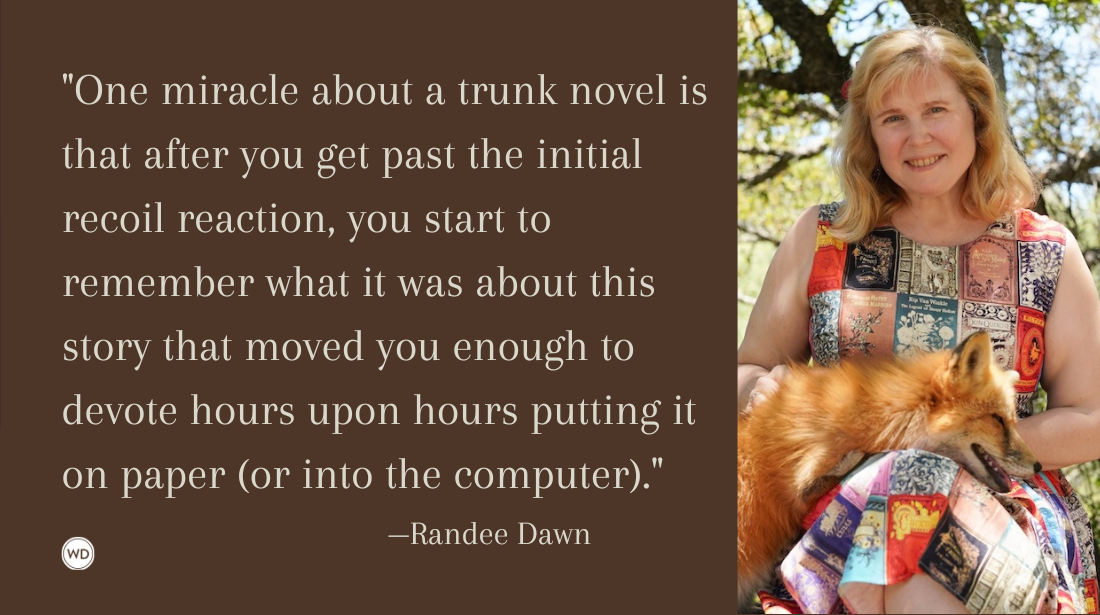Writing Mistakes Writers Make: Chasing Trends
The Writer’s Digest team has witnessed many writing mistakes over the years, so this series helps identify them for other writers (along with correction strategies). This week’s writing mistake is chasing trends in writing and publishing.
Everyone makes mistakes—even writers—but that's OK because each mistake is a great learning opportunity. The Writer's Digest team has witnessed many mistakes over the years, so we started this series to help identify them early in the process. Note: The mistakes in this series aren't focused on grammar rules, though we offer help in that area as well.
Rather, we're looking at bigger picture mistakes and mishaps, including the error of using too much exposition, hiding your pitch, or researching too much. This week's writing mistake writers make is chasing trends in writing and publishing.
Writing Mistakes Writers Make: Chasing Trends
It never fails during a publishing panel that one of the questions asked will be something along the lines of, "What is the next big trend in publishing," or, "What is the current trend in publishing?"
The question is asked as if it will unlock publishing success for the writer asking the question. If I were to answer that the next big trend is going to be clown horror novels, then the writer could quickly write a clown horror novel and start cashing checks. But the answer to this question is never overly helpful for a writer.
For one, editors and publishers are good at figuring out what will sell in general, but it's not as easy to decipher what the next BIG trend will be. Also, publishing often moves at a pace that has a book launched one to two years after acceptance. So knowing a trend today does not guarantee it will still be hot in 12 to 18 months.
I remember phases when scrapbooking was all the rage and coloring books were in vogue. But in both cases, the moment passed as the market flooded with several discounted bargain bin books. The same could be said of certain genres of fiction over the years.
The problem with chasing a trend is that writers are pursuing something over which they have little or no control. There's a better way.
Mistake Fix: Follow Your Interests and Passions
Instead of chasing trends, writers should follow their interests and passions. If you love writing cozy mysteries, but alien thrillers are all the rage, keep working on your cozy mysteries. The alien thrillers will eventually get played out, and your cozy mysteries may turn into the new hotness.
Even if cozy mysteries (or whatever your preferred genre) are not the next BIG thing, you're bound to find more success writing the thing about which you care the most. Because you're invested in the writing, not the potential profits. Readers tend to pick up on that type of thing.
Plus, writers should always keep this one point in mind when working toward success and their career goals: Publishing is a marathon, not a sprint.
Of course, there are exceptions to the rule. Of course, there are writers who found "overnight" success (though most of the time, that "overnight" success was not as "overnight" as it may appear). For most writers, writing and publishing success comes over years and years of consistent work: One book, followed by another book, followed by another, and always building up a readership one launch at a time.
If you view writing and publishing as a "get rich quick" scheme, I'm sorry to tell you that's not how this business tends to work. It takes rolling up your sleeves, opening your notebook (or word processing software), and doing the writing... one... word... at... a... time.
You can try doing that by chasing the extrinsic carrot of fame and fortune, but you'll probably find more fulfillment (and ultimately success) by following the intrinsic passion in your heart.
*****
2nd Draft provides a high-level review of your writing, pointing out reasons your work may be getting rejected, or may not meet the standards of traditional publication. After an evaluation of your submission, one of the professional 2nd Draft critiquers will provide feedback and advice. You’ll not only learn what’s working in your writing, but what’s not, and—most important—how to fix it..
Robert Lee Brewer is Senior Editor of Writer's Digest, which includes managing the content on WritersDigest.com and programming virtual conferences. He's the author of 40 Plot Twist Prompts for Writers: Writing Ideas for Bending Stories in New Directions, The Complete Guide of Poetic Forms: 100+ Poetic Form Definitions and Examples for Poets, Poem-a-Day: 365 Poetry Writing Prompts for a Year of Poeming, and more. Also, he's the editor of Writer's Market, Poet's Market, and Guide to Literary Agents. Follow him on Twitter @robertleebrewer.








